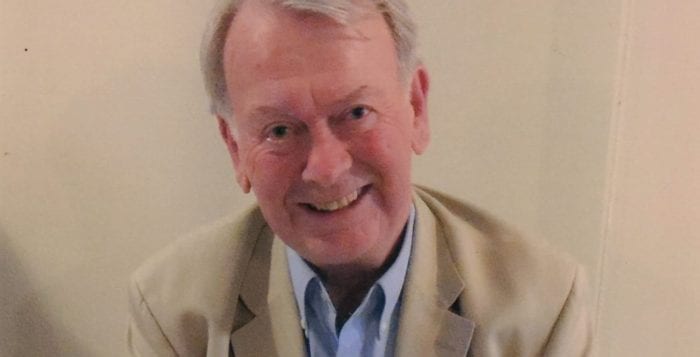By John Broven
Part two of three
I’ve been waiting patiently to write this second part of my personal Brexit overview (see part 1, “Brexit: To leave or not to leave, that is the big question,” TBR News Media’s papers and websites, March 14). There has been an interested response from TBR readers, although as expected not everybody agreed with my Europhile stance or interpretation of events. An apt New York Times description was “fractured Britain.”
Even now, there is no resolution to the terms for the United Kingdom of Great Britain and Northern Ireland to leave the European Union as determined by a national referendum June 23, 2016, almost three years ago — the vote was 51.89 to 48.11 percent. The March 29 deadline went by, so did one on April 12. Now the departure date has been extended begrudgingly by the EU until Oct. 31. That’s Halloween, as many wags have pointed out. Still the drama continues.
Prime Minister Theresa May resigns
On May 24, Prime Minister Theresa May (Conservative, known as Tories) announced her forthcoming departure in tears for failing to deliver Brexit. Never a team player, she was rapidly losing support among her Brexit-leaning party. The withdrawal agreement negotiated with the EU was criticized from all sides even as May tried to soften her parliamentary bill by including environmental measures, workers rights and even the prospect of a second referendum — anathema to Brexiteers in her own party. With no majority in sight for her deal, she will formally resign on June 7, immediately after the state visit by President Donald Trump (R).
She is now the second prime minister to be felled by Brexit in the footsteps of David Cameron (Conservative), who was responsible for calling the 2016 referendum. Indeed, the Tory Party’s neurosis with Europe had previously ensnared former prime ministers, Margaret Thatcher and John Major.
Tory leadership battle
Now, the Brexit process has been put on hold while the ruling Conservative Party elects a new leader, expected by the end of July. That leaves four short months to finalize leave arrangements. Understandably, the EU is running out of patience and has indicated it will not renegotiate the deal on the table, including the controversial Irish backstop.
The number of Tory prime minister candidates currently stands at 11, still well short of the tally of U.S. Democratic presidential candidates. At the time of writing the bookies favorite is the self-serving former mayor of London, Boris Johnson, the New York City-born member of parliament of British parents who dealt a fatal blow to Cameron’s 2016 Vote Remain campaign by treacherously joining the Vote Leave team. The covertly ambitious Michael Gove and hardliner Dominic Raab are also in the running. Just as the U.S. Democratic candidates are in a quandary over presidential impeachment proceedings, so the U.K. Tory leadership candidates are scrambling for Brexit answers.
Our president has caused local controversy by favoring Johnson. If the former mayor is elected as prime minister by the Conservative Party and his pronouncements are carried out, he could lead the country into the worst of all possibilities on Oct. 31 — a hard no deal. It is chilling to think that such a chaotic scenario could happen to the fifth largest economy in the world, with an impact far beyond the borders of Great Britain and Northern Ireland.
As Will Hutton described it in London’s The Guardian, the Brexiteers view is of a blissful but flawed image of “sunlit uplands of immigrant-free, global free trade.” Sir Elton John, also in The Guardian, was more blunt: “I’m ashamed of my country for what it has done. It’s torn people apart … I am sick to death of politicians, especially British politicians. I am sick to death of Brexit. I am a European. I am not a stupid, colonial, imperialist English idiot.”
EU elections shock
The British government had hoped to avoid taking part in the recent EU elections, but as the country was still formally one of the 28 member states the people went to the polls on May 23. In keeping with the unpredictable Brexit mess, what a shocking result it turned out to be. Former UKIP leader and an elected member of the European Parliament since 1999, Nigel Farage, who has been described by his Euro colleagues as a “one-man wrecking ball,” had formed the new Brexit Party only six weeks previously and topped the polls with a 30.8 percent share of the vote. The two leading parties in British politics for almost 100 years, Labour (third place) and Conservatives (fifth), managed a meager 23 percent of the vote between them, beaten by second-place Liberal Democrats with their remain message and fourth-place Green Party with an urgent climate-change agenda.
Tellingly, the Tories suffered their worst election result since formation in 1834 and registered only 8.8 percent of the vote, with no seats won in London. May’s party had also taken a shellacking in the earlier county council elections. That’s the current governing party, don’t forget. As The Washington Post noted, coalition governments and a genuine multiparty system may be the future of British politics.
In effect, British voters were giving a severe kicking to the government and lead opposition party under arch-socialist Jeremy Corbyn for their inept handling of Brexit. Intriguingly, Scotland and Northern Ireland still balloted majority votes to remain candidates. The MEPs term will end if and when Brexit occurs. Taking all the parties into account, the respective total leave and remain votes were very close, which is where we came in — a divided nation with a divided parliament and parties internally divided.
The cross-Europe vote showed a fragmentation of parties, with the establishment center-left and center-right bloc losing power. The populist parties in Britain, France and Italy showed gains but surprisingly little elsewhere, notably in Holland. There was a general message that the EU needs to address growth, security, immigration (again) and climate change (the U.S. please note). Still, with a turnout in excess of 50 percent, there are indications the Europeans still see their union as the future. In the wake of the Brexit debacle, it seems the other Euro populist movements are determined to fight for their cause from inside the EU, not on the outside with little influence.
Incidentally, I was impressed by the BBC World News TV election coverage Sunday, May 26, and its first-class presenter Ros Atkins. I learned a lot about the EU, its procedures, the debating arguments and how countries from Germany to Latvia voted. If only Brexit voters had been educated likewise.
Where the UK stands
Embarrassingly, Britain’s pragmatic standing in the world seems to be falling by the day. I’ve lost count of the number of barbed Monty Python jokes I’ve seen in print. As my good friend John Ridley, of Hildenborough, Kent, told me, “I can’t recall any other democratic country committing an act of such extreme self-harm ever before.”
The Brexit fiasco shows on a macro level that elections do matter and do have consequences — in this instance, for an entire nation and its future. And the dangers of putting such a critical issue to an ill-informed public by way of a loosely worded referendum have been fully exposed.
If there is a lesson for us all, it is a message that TBR News Media carries at every election: Your vote counts, please vote — and do understand what you’re voting for. That applies from presidential elections to the local fire departments, libraries and schools (the turnout for the recent Three Village Central School District budget vote was abysmal).
With Brexit still unresolved, I am readying myself for a part 3 Your Turn article but further patience may be required on the part of myself and TBR readers. Will there be a second referendum, general election, another EU extension or a hard no deal?
John Broven, a member of the TBR News Media editorial team, is an English-born resident of East Setauket, who immigrated to the United States in 1995. He has written three award-winning (American) music history books. An updated edition of his second book, “South to Louisiana: The Music of the Cajun Bayous,” has just
been published.












 How often do we watch an interview with someone who has accomplished the unimaginable, who doesn’t know what to say or who is it at a loss for words when someone shoves a microphone in that person’s direction?
How often do we watch an interview with someone who has accomplished the unimaginable, who doesn’t know what to say or who is it at a loss for words when someone shoves a microphone in that person’s direction?



